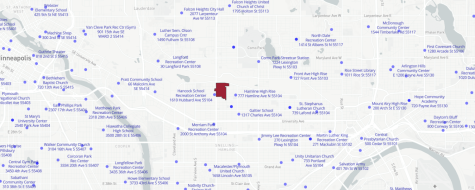Then and now: voting at Hamline
November 8, 2022
Hamline students are buzzing with anticipation this Election Day as the opportunity approaches to vote on issues they care about. Some students have been able to vote in prior elections, but many new voters are also emerging on campus, like Sidra Neitge.
“It’s useless to complain about issues in our society,” Neitge, a first-year and new voter, said. “You have to use your vote to change them.”
Students like Neitge are excited to go out, have their voices heard and make an impact on the community and world they live in.
Voting in local elections this year determines the outcome of who fills seats in the local, state and federal governments, and how they may represent issues including reproductive rights, democracy and education.
But what about 100 years ago? What were students passionate about and what did they fight for?
“100 years ago, which would have been 1922, the student body would have likely been mostly male and Republican leaning. It was the second election in Minnesota where women would have had the right to vote,” political science professor David Schultz said. “50 years ago, in 1972, the issues dominating [the student body] were the war in Vietnam, civil rights issues, largely race and gender. 25 years ago, in 1997, voters focused on queer issues, questions about marriage quality, legalization of marijuana and affordability of tuition.”
In 2022, the topics that voters find important vary from person to person, but cover a myriad of social issues.
“We have generations of ancestors who fought hard for the right to vote and democracy. We have an obligation to cast a ballot. If you don’t vote, nobody listens to you,” Schultz said on the importance of voting today
Every vote is important. While in some cases, especially in an election on a larger scale, a single vote may seem like it doesn’t contribute much. But it does. Voting in state elections, midterms and even things like school board elections are extremely important to participate in, as it allows voters to have their voices heard.
Have questions about the voting process or how to cast your vote? Visit the Wesley Center on the third floor of Anderson Center or visit their page on the Hamline website for resources on how to vote. Additionally, check out the U.S. Election Assistance Commission website for more information on larger scale elections at www.eac.gov.


